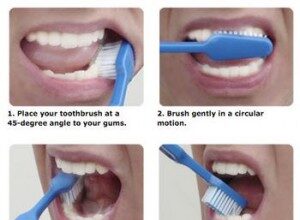 First published on MedCityNews.com. The compelling idea behind digital health isn’t just to deliver health data to patients and doctors. It’s to turn that data into a narrative that reveals some kind of story about a person’s health.
First published on MedCityNews.com. The compelling idea behind digital health isn’t just to deliver health data to patients and doctors. It’s to turn that data into a narrative that reveals some kind of story about a person’s health.
 First published on MedCityNews.com. The compelling idea behind digital health isn’t just to deliver health data to patients and doctors. It’s to turn that data into a narrative that reveals some kind of story about a person’s health.
First published on MedCityNews.com. The compelling idea behind digital health isn’t just to deliver health data to patients and doctors. It’s to turn that data into a narrative that reveals some kind of story about a person’s health.
That’s what Dr. Leslie Saxon and her team are trying to achieve at the Center for Body Computing at the University of Southern California. Trained in invasive cardiology, Saxon is the chief of cardiovascular medicine at USC’s Keck School of Medicine. On the side, she works at the center with engineers, physicians, designers, artists and entertainers to study and develop digital health solutions that put patients at the center of their own care.
Saxon shared some insights with MedCity News about what makes some digital health products more compelling than others and what’s needed to make these products stick.
MCN: We’re seeing a lot of different stakeholders, from telecommunications providers to mobile device makers, getting into the digital health game. Who’s still missing at this point?
LS: The interesting thing about digital health is that it really requires a lot of different players. The carriers have a very natural distribution chain for mobile health experiences. The tablet makers are in a very interesting position, and the smartphone makers too, to have some embedded solutions in their products. And the large search and data analytic storage groups like Google and Amazon and Microsoft are in a position to both help store and analyze the data as well as to provide enterprise solutions for interoperability issues. So it’s a very rich network.
One of the most important things are the storytellers. We work a lot with professional storytellers in entertainment, because in order to get people continuously interacting with their biometrics for health, you need to have a compelling storyline. Everyone’s healthcare story is pretty compelling, so we work a lot on that part.
MCN: Can you give an example of an interesting project you’re working on at the Center for Body Computing?
LS: I think we’re really interested in trying to use more and more video – short form video production – to reach a lot of people. Medical content is still not where it should be. Searching for content, it’s OK if it’s a one-time thing, if you want to learn something about a diagnosis. But if you have a chronic disease and you’re trying to search for medical content, I think video is a really good way to tell the content story that sticks with people.
MCN: You also recently joined the board of a company called Endotronix, which uses an implanted biosensor to capture a patient’s pulmonary artery pressure, which is transmitted to the cloud and can be accessed via phone or tablet. What is it about a product like this that stands out?
LS: This product is for patients that have a very common condition called heart failure, and what I think it will be able to offer is what patients want, which is a high degree of efficacy and a low degree of invasiveness with a very patient-centered solution.
MCN: What about doctors in all of this? Are they open to intercepting this kind of data from patients?
LS: With a lot of these solutions, the idea is not to have the doctor have to look at every piece of data. A lot of these solutions just intermediate the doctor, so the only thing the doctor’s looking at are the patients who are really having problems. The rest of the solutions are closed-loop and very patient-centered.
There’s this consumerization of healthcare where people don’t want to have to go through the doctor to interact with their data, and every solution that I work on provides the patient with their own portal, their own interface, their own autonomy, and the ability to contact the doctors if they need it. But I’m not very interested in solutions that only reach the doctor and not the patient or the caregiving community simultaneously. I’m creating solutions with our partners that provide efficiency for doctors, allow them to leverage their expertise, but really meet the needs of patients.
MCN: That being said, are there other companies or specific technologies you find really interesting right now?
LS: I’m very interested in those minimally invasive implantable devices that are able to access some body metric — in the case of Endotronix it’s pressure. But I’m also interested in worn sensors that can measure heart rate or other important things, or maybe multiple things, and provide an experience to the patient or the athlete that will allow them to become more educated about their health, and allow us on the back-end to build a whole health portfolio digitally of that person and make that experience engaging and continuous so that you’re always getting the data.
MCN: You mentioned wearables, which is a really trendy market that I don’t think has quite proved itself yet. How will companies making these devices find traction?
LS: Right now the only market that’s seeing any penetration at all is the fitness/wellness market, but I think that people will be recording biometrics in social media. We developed something at our conference called BioGram, which was a photo sharing app that we built that incorporates heart rate. I think that for biometric solutions to scale, they have to leverage existing powerful experiences that reach a lot of people, and social media is that way.
This interview has been edited for length.








